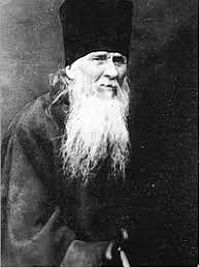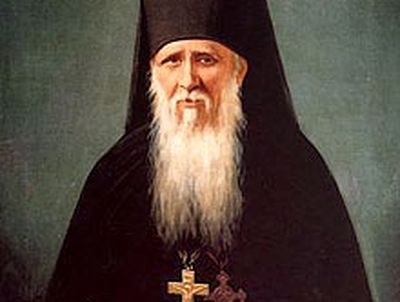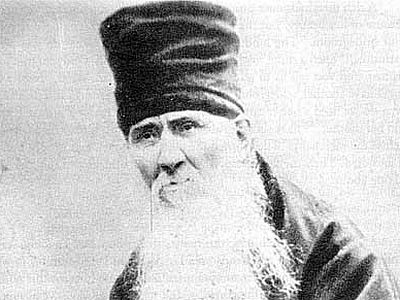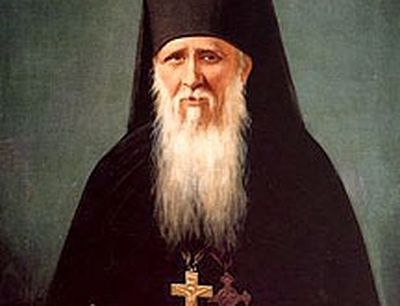On June 27/July 10, the Church celebrates the
uncovering of the relics of St. Ambrose of Optina. We
offer to our readers a letter from the forthcoming book by
Pokrov Publications, St. Ambrose of Optina.
Letters to Laymen.
Your
Illustrious Excellency!

I was
reading what you dictated, and also heard a verbal
explanation from Fr. K. regarding your present
situation in an ailing condition. And you would like to
know my feeble-minded opinion on everything that you
expressed. I reflected not a little on your situation,
and I find that now, especially in your ailing
condition, you should not despise the fact
that—whether it be words that you heard, or a
dream of this sort—it had a good influence on you
and produced a good impression. The Lord God has many
means to the end of turning the thought and care of a
person to the one thing needful, in time, and primarily
to what was spoken by the Lord in the Gospel: “be
ready at all times, for ye know neither the day nor the
hour in which the Son of Man will come.” If,
according to the word of St. John of the Ladder, the
thought of death brings a Christian great benefit, then
how much more can preparation for death profit the soul
of a person who awaits his departure out of this life
with faith and hope! It seems to you that being
solicitous about preparing for death makes you less
capable of everything good and necessary. But this is
wrong. It seems this way to you because you are not
completely sure of your future fate. But who can be
completely sure of this, when even the perfect ones and
God-pleasers, for instance Arsenius the Great and
Agathon the Great, awaited the approaching hour of
death not without fear? The monk-martyr Peter Damascene
says that “the salvation of a Christian is found
between fear and hope, and therefore under no
circumstances must one either be bold or
despair.” You complain of old habits and your
imagined laziness. But what sick person does not feel
both mental and spiritual weakening? Recently, in
“Soul-Profiting Reading,” there was printed
a conversation of St. Anastasius of Sinai on Psalm 6
(March issue). I find that this conversation is very
fitting to your present situation. Read it with
attention yourself, or have someone read it to
you—and read it through more than once. In it you
will find much that can set you at ease, and strengthen
you, and make understood to you on what primarily you
should focus your attention regarding that well-known
preparation. The outward preparation, however, as I
think, should start from two main subjects: to write
your spiritual testament, and to receive the mystery of
Unction, after having made confession and received Holy
Communion beforehand. As to which of these two you
ought to pursue first, it doesn’t matter—as
circumstances direct.
In the spiritual testament, regarding your possessions,
look at the zeal and disposition of your soul; but do not
make the disposing of it according to simply human
feelings alone, but behave with discernment, having in
view what is profitable for your soul. I likewise will say
to you concerning Holy Unction, that you should not put it
off. Through this mystery bodily health has been restored
to many. Its main benefit, however, is the forgiveness of
forgotten transgressions.
Finally, you are in doubt as to where you should begin
your preparation—on Mt. Athos or in our monastery,
or in Moscow. I find that, in your present situation, you
should postpone all concern about a trip to Athos, as
something difficult to fulfill, and impossible. But if it
pleases the Lord God to grant you strength to such an
extent that you are able not only to travel, but also to
live there for a while, then it will be possible to think
about this subject. But meanwhile begin your preparation
in Moscow, waiting to see what state your health will be
in at the beginning of the year. If you have strength
enough then to travel to our monastery, then nothing
hinders doing that—and welcome! Then we will talk in
person about everything, if by the will of God we are
alive. It says in the proverb: “in one’s
homeland even death is beautiful.”




